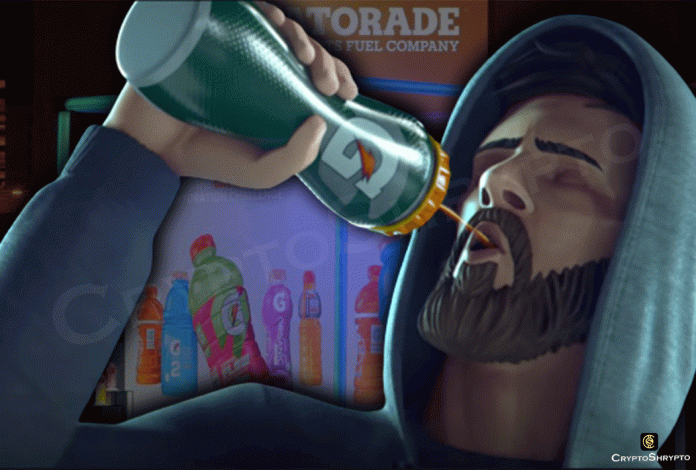Gatorade, a famous brand of sports-themed beverage and food products, has applied for a trademark with the United States Patent and Trademark Office (USPTO) to sell virtual beverage products.
According to its February filings, McDonald’s, the world’s largest fast-food restaurant company, also aims to begin supplying beverage products and virtual goods.
Coca-Cola, the company behind the world’s most popular soft drink, announced last month that its brand-new Zero Sugar Byte drink would debut in the Metaverse before making its physical debut. It collaborated with gaming company PWR to create a bespoke island for the Fortnite game.
Meanwhile, in March, Heineken hosted a virtual event, delivering a “taste” of its virtual beer.
Anheuser-Busch, the beer company, also joined the Metaverse bandwagon in April. It intends to sell NFTs with pictures of Bud Light beer cans.
After social networking behemoth Facebook announced its major rebranding last October, plenty of marketers rushed to explore the Metaverse.
Aside from corporate adoption, institutional investors are becoming more interested in virtual worlds. In recent weeks, Fidelity Investments, Galaxy Digital, and other big firms established Metaverse-related exchange-traded funds.
Despite a $3 billion loss in Reality Labs, Meta’s Metaverse division, in the first quarter, CEO Mark Zuckerberg remains dedicated to the company’s new venture. The billionaire backed Facebook’s foray into virtual worlds, stating that the Metaverse is the way of the future.
However, according to Google Trends, interest in the Metaverse has dropped since Meta’s announcement, which is likely a worrying sign for the industry.




